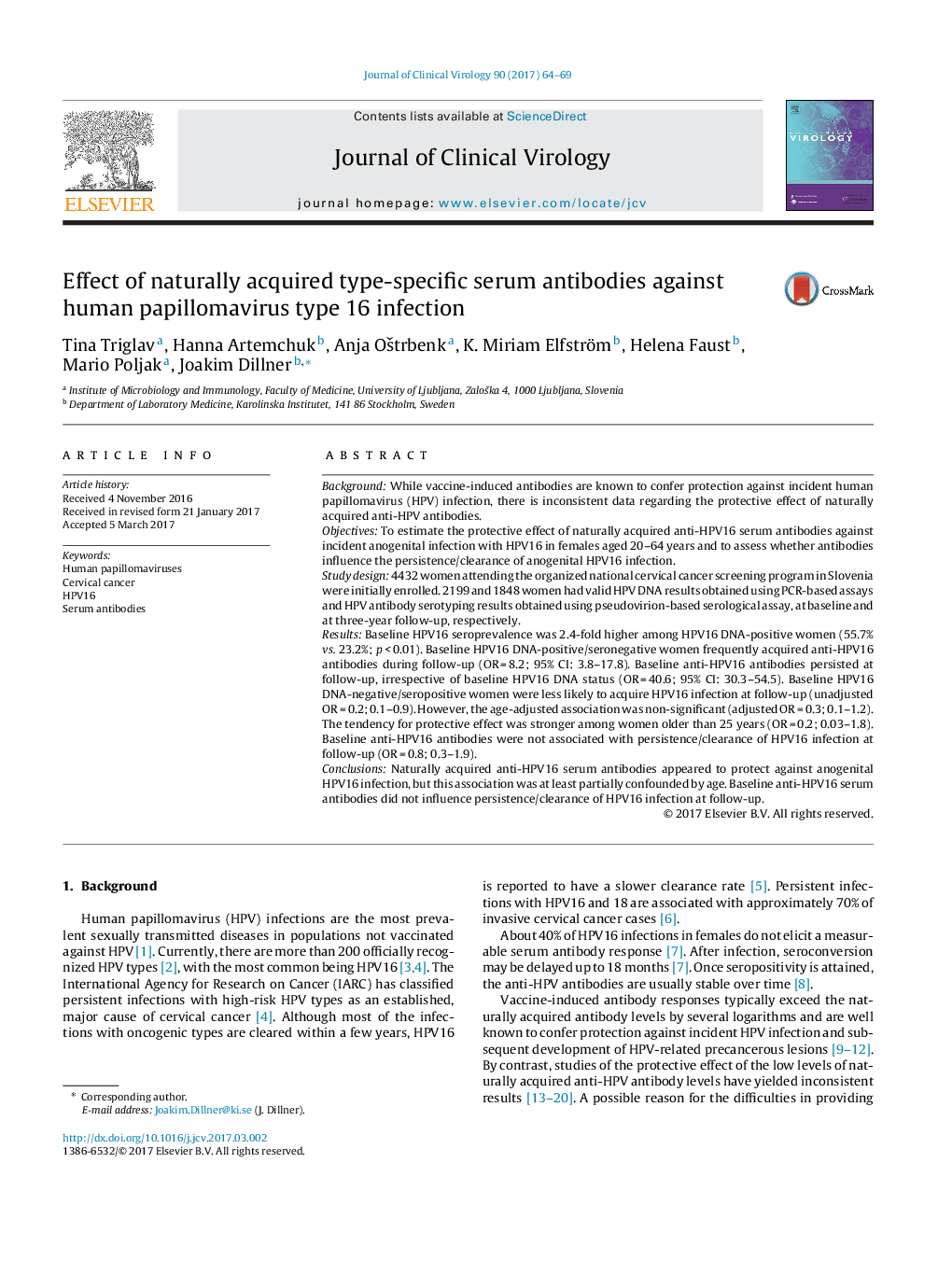| Article ID | Journal | Published Year | Pages | File Type |
|---|---|---|---|---|
| 5668140 | Journal of Clinical Virology | 2017 | 6 Pages |
â¢2199 Slovenian women with 3-year follow-up HPV DNA and anti-HPV16 results studied.â¢Naturally acquired HPV16 antibodies protect against anogenital HPV16 infection.â¢Protection against HPV16 infection is at least partially confounded by age.â¢HPV16 antibodies do not influence persistence/clearance of HPV16 infection.
BackgroundWhile vaccine-induced antibodies are known to confer protection against incident human papillomavirus (HPV) infection, there is inconsistent data regarding the protective effect of naturally acquired anti-HPV antibodies.ObjectivesTo estimate the protective effect of naturally acquired anti-HPV16 serum antibodies against incident anogenital infection with HPV16 in females aged 20-64 years and to assess whether antibodies influence the persistence/clearance of anogenital HPV16 infection.Study design4432 women attending the organized national cervical cancer screening program in Slovenia were initially enrolled. 2199 and 1848 women had valid HPV DNA results obtained using PCR-based assays and HPV antibody serotyping results obtained using pseudovirion-based serological assay, at baseline and at three-year follow-up, respectively.ResultsBaseline HPV16 seroprevalence was 2.4-fold higher among HPV16 DNA-positive women (55.7% vs. 23.2%; p < 0.01). Baseline HPV16 DNA-positive/seronegative women frequently acquired anti-HPV16 antibodies during follow-up (OR = 8.2; 95% CI: 3.8-17.8). Baseline anti-HPV16 antibodies persisted at follow-up, irrespective of baseline HPV16 DNA status (OR = 40.6; 95% CI: 30.3-54.5). Baseline HPV16 DNA-negative/seropositive women were less likely to acquire HPV16 infection at follow-up (unadjusted OR = 0.2; 0.1-0.9). However, the age-adjusted association was non-significant (adjusted OR = 0.3; 0.1-1.2). The tendency for protective effect was stronger among women older than 25 years (OR = 0.2; 0.03-1.8). Baseline anti-HPV16 antibodies were not associated with persistence/clearance of HPV16 infection at follow-up (OR = 0.8; 0.3-1.9).ConclusionsNaturally acquired anti-HPV16 serum antibodies appeared to protect against anogenital HPV16 infection, but this association was at least partially confounded by age. Baseline anti-HPV16 serum antibodies did not influence persistence/clearance of HPV16 infection at follow-up.
